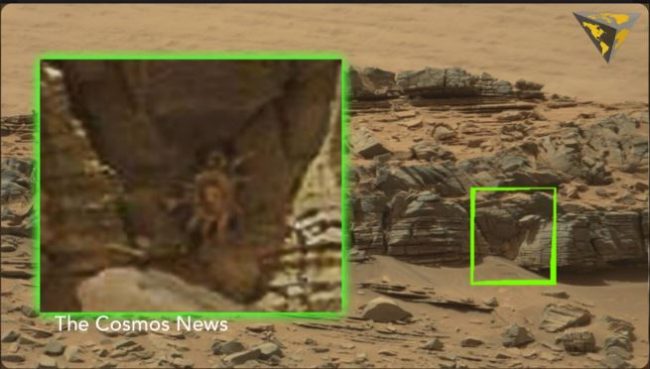Tech
NASA spots more alien spiders on Mars

American space agency, NASA has released pictures of ‘spiders’ on the Red Planet… which still don’t prove that aliens once lived on the Martian surface.
Despite their colourful name, the spiders are actually mounds formed by a natural process.
The images were captured by Nasa’s Mars Reconnaissance Orbiter and show an area near the south pole of the wine-dark world. Nasa wrote: ‘These aren’t actual spiders.’ ‘The spider-like radiating mounds form when carbon dioxide ice below the surface heats up and releases.
‘This is an active seasonal process not seen on Earth. Like dry ice on Earth, the carbon dioxide ice on Mars sublimates as it warms (changes from solid to gas) and the gas becomes trapped below the surface.
Read also: AI could make detecting autism easier, researchers reveal
‘Over time the trapped carbon dioxide gas builds in pressure and is eventually strong enough to break through the ice as a jet that erupts dust.
‘The gas is released into the atmosphere and darker dust may be deposited around the vent or transported by winds to produce streaks.
‘The loss of the sublimated carbon dioxide leaves behind these spider-like features etched into the surface.’
Nasa released pictures of another set of ‘spiders’ just after David Bowie’s death in January 2016.
RipplesNigeria… without borders, without fears
Click here to join the Ripples Nigeria WhatsApp group for latest updates.
Join the conversation
Support Ripples Nigeria, hold up solutions journalism
Balanced, fearless journalism driven by data comes at huge financial costs.
As a media platform, we hold leadership accountable and will not trade the right to press freedom and free speech for a piece of cake.
If you like what we do, and are ready to uphold solutions journalism, kindly donate to the Ripples Nigeria cause.
Your support would help to ensure that citizens and institutions continue to have free access to credible and reliable information for societal development.
























